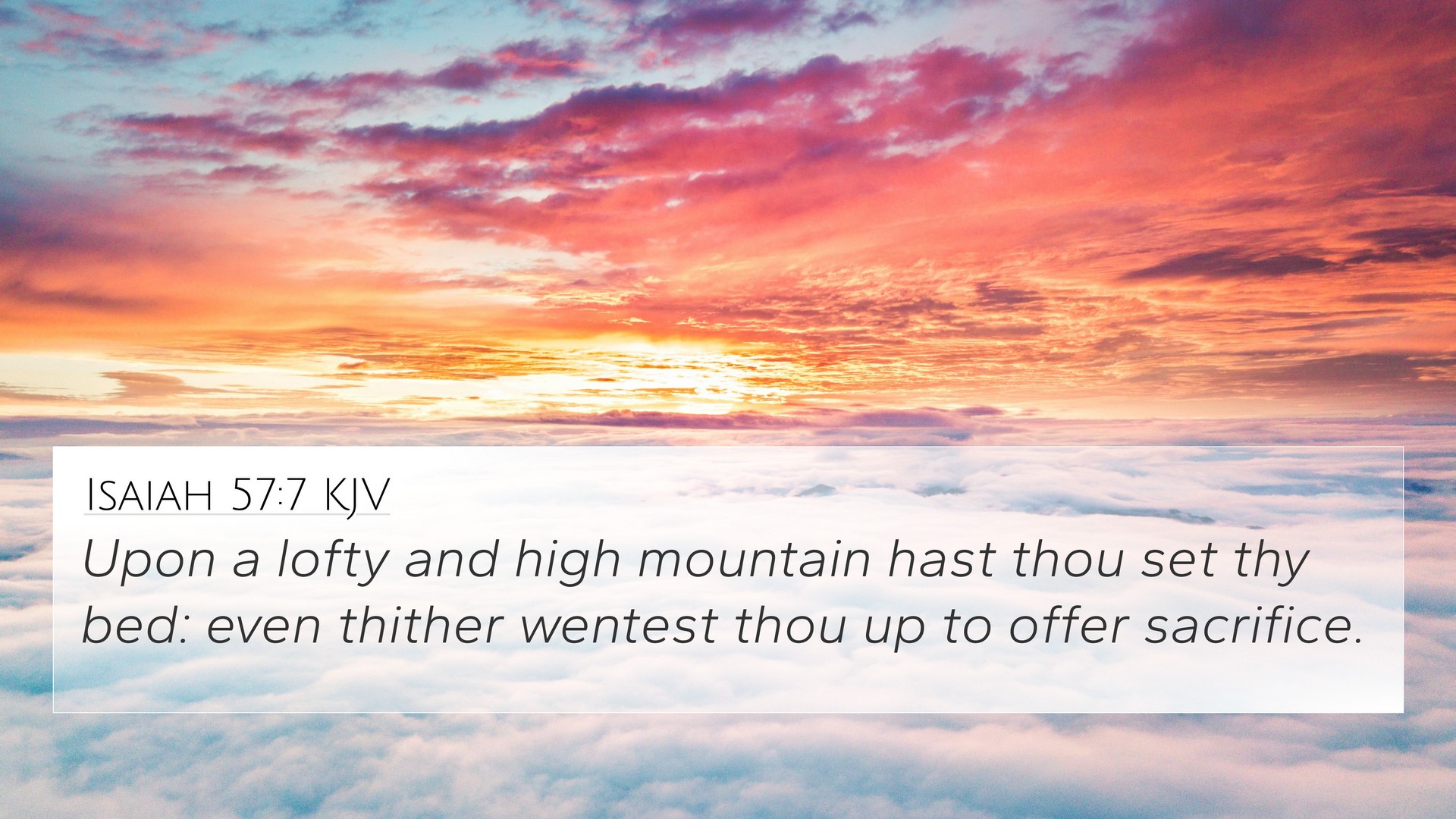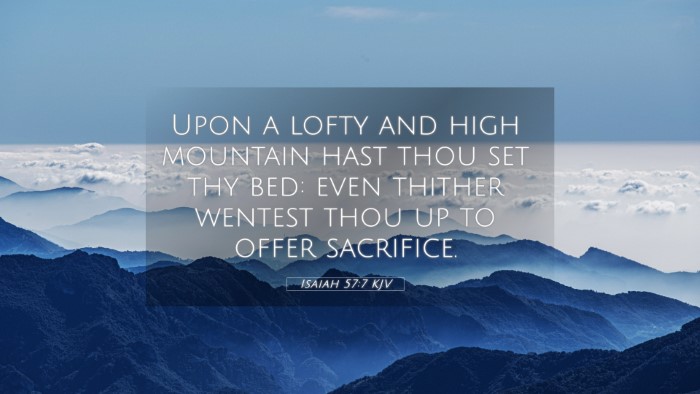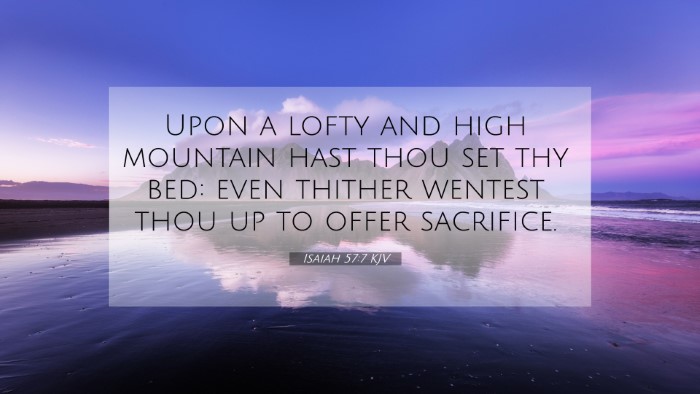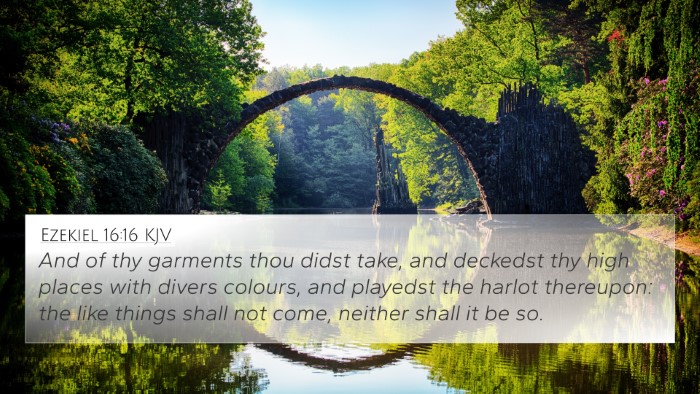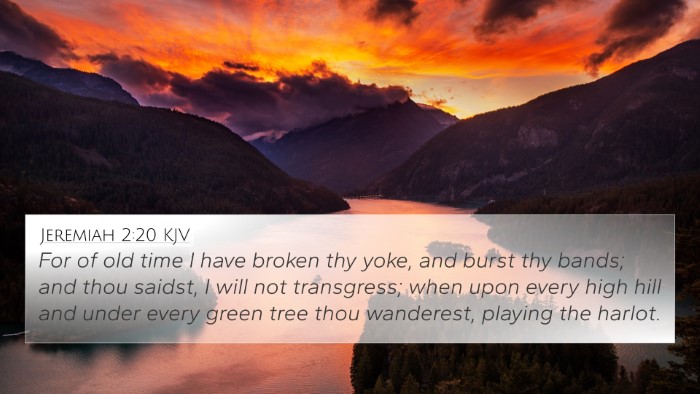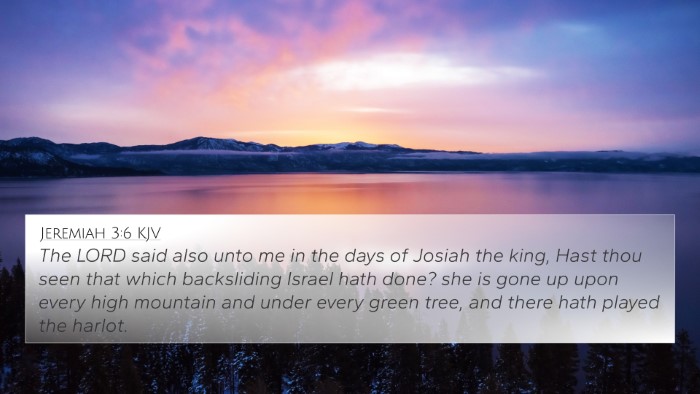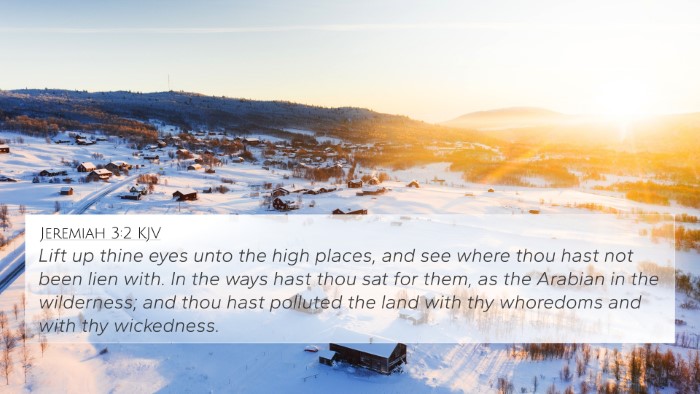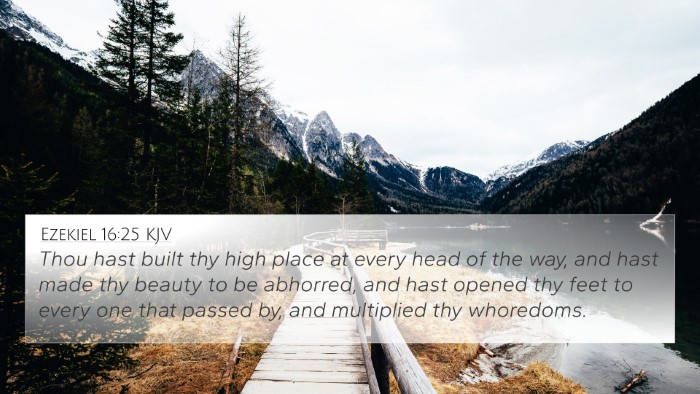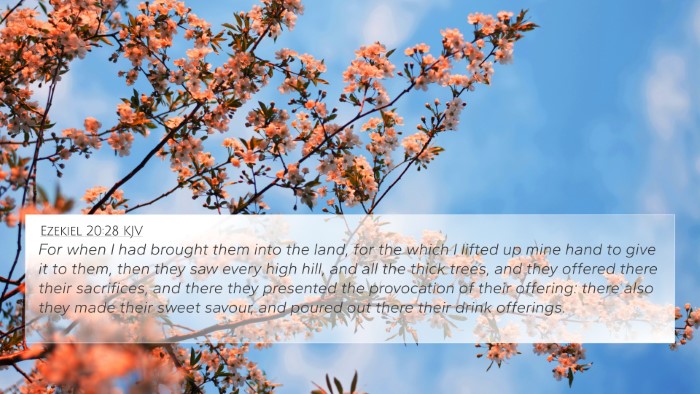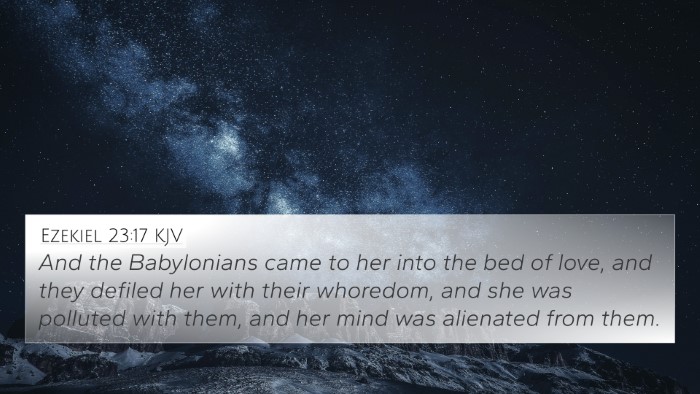Understanding Isaiah 57:7
Isaiah 57:7 states: "Upon a lofty and high mountain hast thou set thy bed: even thither wentest thou up to offer sacrifice."
This verse presents a vivid image of idolatry and false worship. Let's delve deeper into the interpretations of this text, drawing upon insights from renowned public domain commentaries.
Meaning and Context
The verse highlights the people’s proclivity to engage in worship upon high places, which was common during biblical times associated with idolatrous practices. The act reflects a spiritual waywardness, where the people sought intimacy with false gods rather than with the true God.
Insights from Commentaries
-
Matthew Henry:
Henry contextualizes this verse within God’s impending judgment. He emphasizes that the high places symbolize both spiritual pride and the people's rebellion against divine commandments.
-
Albert Barnes:
Barnes points out that going up to offer sacrifices signifies a departure from the prescribed practices of worship. He notes that such actions are indicative of an unfaithful heart that seeks fulfillment outside of God's law.
-
Adam Clarke:
Clarke elaborates on the implications of setting one’s "bed" on a high mountain, suggesting a metaphor for seeking comfort and pleasure in sinful practices, distancing oneself from the true communion with God.
Thematic Connections
This verse resonates with broader themes found throughout the Bible, providing a rich ground for cross-referencing with other scriptures. Below are thematic Bible verse connections:
- Exodus 34:14: Details the necessity of exclusive devotion to the Lord.
- Jeremiah 17:2: Illustrates the practice of idolatry and its deep-rootedness in the hearts of the people.
- 1 Kings 14:23: Describes the high places established by Israel's leaders for worshipping false gods.
- Hosea 4:13: Discusses the offerings made under oak trees and high hills, criticizing the idolatrous practices of the Israelites.
- Micah 1:3-4: Portrays the judgment of God against those who engage in sinful worship on high places.
- Matthew 5:14: Contrasts the high places by presenting the faithful followers of Christ as the light of the world.
- Romans 1:25: Addresses the turning away from worshiping God to the worship of created things, paralleling the essence of Isaiah’s message.
Cross-Referencing Biblical Texts
The inter-Biblical dialogue between passages invites a comparative Bible verse analysis. By examining verses such as Deuteronomy 12:2-3, which commands the destruction of high places, we can see a consistent message concerning true worship and the dangers of idolatry.
Tools for Bible Cross-Referencing
For those interested in exploring the connections between Bible verses, utilizing resources such as:
- Bible concordance
- Cross-reference guides
- Comprehensive Bible cross-reference materials
These tools facilitate the identification of links between the Old and New Testaments, helping readers to grasp how different verses relate and support each other.
Practical Applications
Understanding the thematic Bible verse connections encourages believers to reflect on their worship practices. Consider:
- Self-Examination: Are there high places in our lives where we seek fulfillment outside of God?
- Community Influence: How do we guide others in worshiping the one true God?
- Reinforcement of Faith: How can cross-referencing scriptures strengthen and deepen our understanding of our faith?
Conclusion
Isaiah 57:7 serves as a poignant reminder of the allure of idolatry and the necessity of pure worship. By examining this verse in light of other scriptures, we are encouraged to engage in cross-referencing Bible study methods that deepen our comprehension.
Whether it's through the use of a Bible cross-reference system or thematic analysis, the connections between scripture illuminate profound truths about faith, worship, and the character of God.
